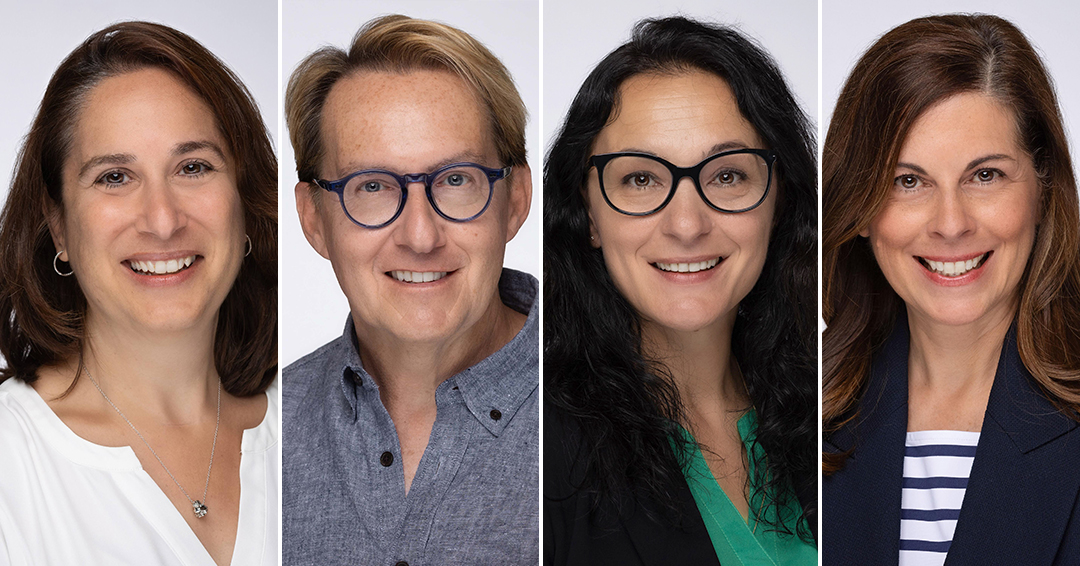
Offered onsite to 40 health professionals in the CIUSSS West-Central Montreal, the workshop shared practical tips and tools for teaching in busy clinical environments
On November 7, 2023, the McGill University Faculty of Medicine and Health Sciences’ Faculty Development Office delivered an intensive workshop on teaching in time-scarce clinical environments for 40 health professionals in the CIUSSS West-Central Montreal.
Titled “Effective teaching in a busy clinical environment: practical tips and tools” and delivered in French, the three-hour workshop was the first outreach activity offered by the Faculty Development Office to a CIUSSS.
It also drew on experienced facilitators from McGill’s Faculty of Medicine and Health Sciences, including:
- Michelle Elizov, MD, MHPE, Associate Dean of Faculty Development
- Mark Daly, RRT, B.Comm, MA (Ed), Assistant Dean of Faculty Development, Montreal Campus
- Marinela Mandra, MD, then the Assistant Dean of Faculty Development, Campus Outaouais
- Annie Chevrier, N, MScA, Director of Online Initiatives and Continuing Nursing Education
“The beauty of outreach like this is that our office goes to the CIUSSS and provides an activity at their institution,” Daly says. “This often saves a lot of time for participants, who don’t have to factor in transportation time. It’s also easier to be at their workplace in case they are called away urgently.”
Reflecting on different ways of teaching
Squeezing moments for quality teaching into hectic clinical schedules may seem daunting to many. The workshop pointed to one way of addressing this challenge: helping clinicians find teaching opportunities in tasks they are already doing.
“We tried to make this workshop practical, but to also make people think a little differently about what they consider to be teaching,” Daly says. “Teaching isn’t always sitting down at a conference table with your students and having a conversation. Teaching is also role-modelling – asking learners to watch you do a procedure or interact with other supervisors and health professionals.”
Being respectful, behaving professionally and asking open-ended questions are all skills that every healthcare provider needs, he explains, adding that learners can gain these skills by observing their supervisors demonstrating these qualities while working with colleagues and patients.
The workshop also outlined techniques that clinical teachers can use to reframe conversations with learners and give them a chance to ask questions about concepts they are struggling with. By doing so, teachers can help them find strategies to get a better understanding of what they are learning.
“What learners really want to do is talk about what they don’t understand,” Daly says. “It’s great to tell a student they did a great job, but it’s also important to ask if they are facing any challenges.”
Sharing knowledge and tips across professions
Laurence Boisvert, Chief – Education and stages in the CIUSSS’s Directorate of Academic Affairs and Research Ethics, says the workshop from the Faculty Development Office responded perfectly to the objectives of the CIUSSS’s ongoing series of events on clinical teaching.
The interprofessional nature of the workshop, which the Faculty Development Office encouraged from the outset, was also key to its success, she adds.
Among the 40 attendees were physiotherapists, physiotherapy technicians, nurses, psychologists, nutritionists, social workers and support staff for clinical teachers in the CIUSSS.
“The fact that participants were divided into small groups from a variety of professions and backgrounds, among others, encouraged enriching exchanges,” Boisvert says. “This enabled each participant to benefit from the expertise of their discussion partners, to become aware of the realities of each environment, to debate their points of view and to propose solutions aimed at optimizing their teaching methods.”
The workshop received rave reviews from participants, with many recommending it to new clinical supervisors and asking for a longer workshop in future.
“The workshop was also a success thanks to the collaboration of the administrative and leadership teams of both the CIUSSS and the Faculty of Medicine and Health Sciences at McGill,” says Dr. Elizov. “It’s an excellent example of how the University and our clinical partners can work together to improve the educational experience of our learners.”
Find out more about the Faculty Development Office’s activities on their website.
Related:
